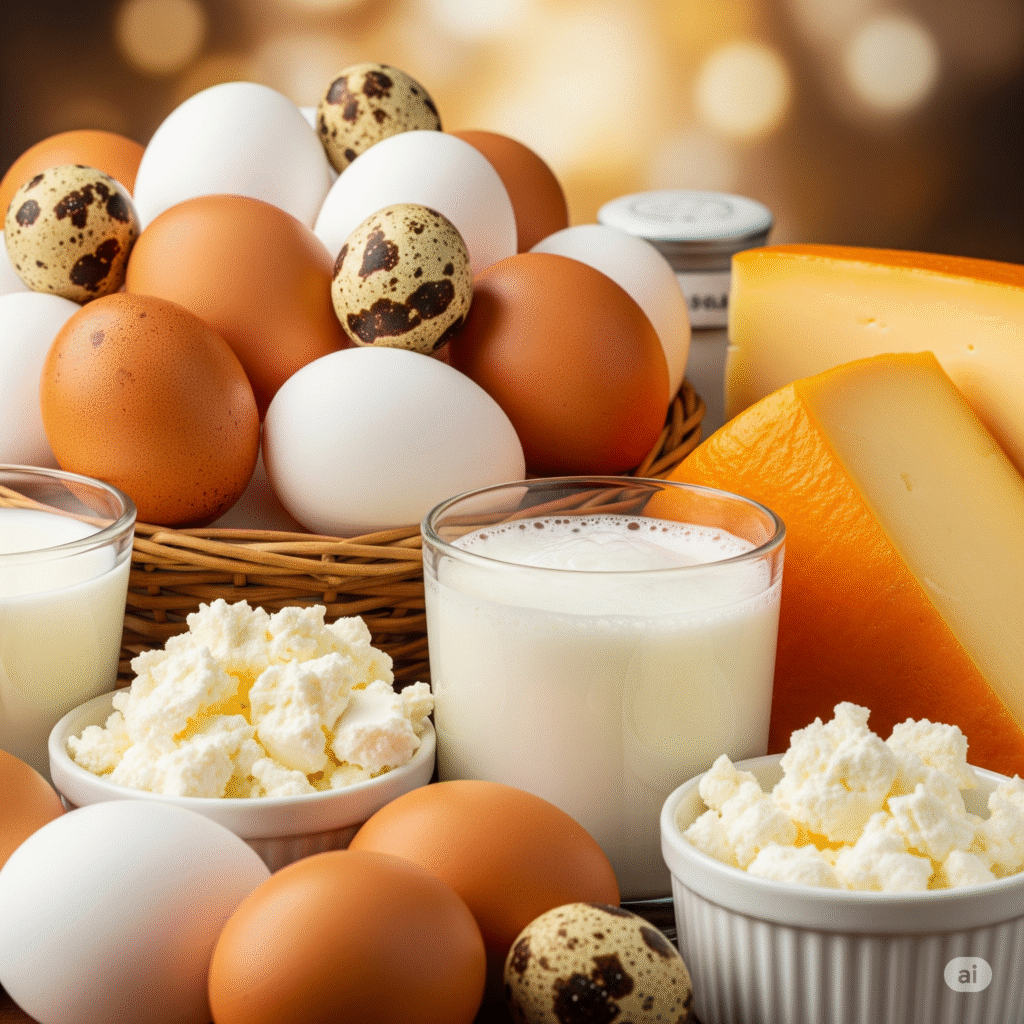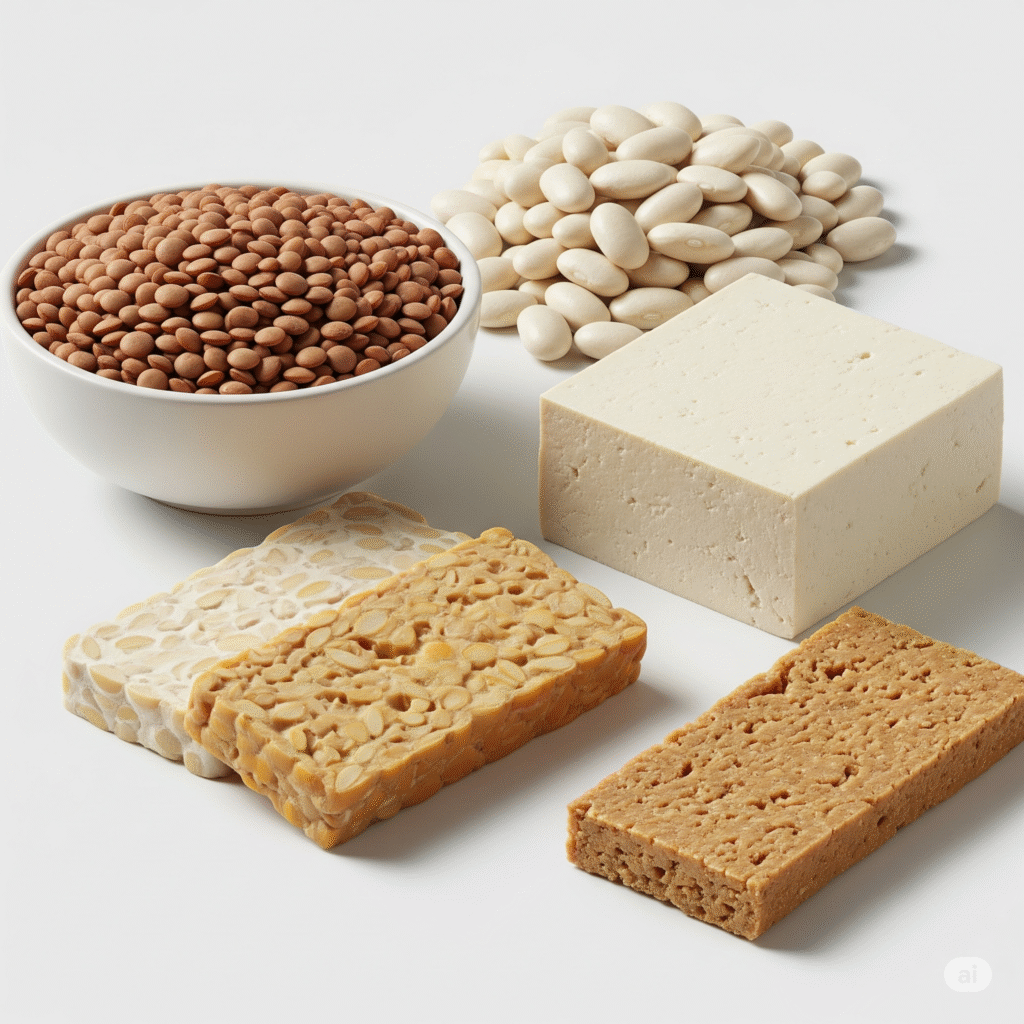How To Become A Great Vegan in 2025!
Going vegan isn’t just a food choice anymore—it’s a lifestyle, a movement, and in 2025, it’s more accessible than ever. Whether you’re switching for the animals, your health, the planet, or all of the above, this guide is here to help you go from “curious” to confident vegan—without the overwhelm.
Let’s break it down step by step so you can thrive as a great vegan in 2025.
🌱 What Does It Really Mean to Be Vegan?
Being vegan means choosing to avoid animal products—not just in your food, but also in your clothes, skincare, and daily habits.

✅ Vegans avoid:
- Meat, poultry, fish
- Dairy and eggs
- Honey (for strict vegans)
- Leather, fur, wool
- Animal-tested products
✅ Vegans embrace:
- Plant-based foods
- Cruelty-free beauty and household products
- Sustainable, eco-friendly choices
- A compassionate lifestyle
But don’t stress—you don’t have to be perfect. Veganism is a journey, not a test.
Step 1: Start With What’s on Your Plate
The easiest way to begin is by veganizing your meals. In 2025, plant-based options are everywhere—from supermarkets to restaurants.
✅ Easy swaps:
- Milk → Almond, oat, or soy milk
- Butter → Olive oil or vegan butter
- Meat → Tofu, tempeh, lentils, or mock meats
- Eggs in baking → Flaxseed or chia eggs
- Cheese → Cashew cheese or nutritional yeast
Start with 1–2 vegan meals a day, and slowly transition. No pressure to be 100% overnight.
🍴 Step 2: Learn to Build a Balanced Vegan Plate
Becoming a great vegan isn’t just about removing meat—it’s about fueling your body with plant power.

✅ A healthy vegan plate includes:
- Protein: Lentils, beans, tofu, tempeh, seitan
- Carbs: Brown rice, quinoa, sweet potatoes, oats
- Healthy fats: Avocados, nuts, seeds, olive oil
- Veggies: Leafy greens, colorful veggies, cruciferous veggies
- Fruit: Berries, bananas, citrus, mangoes
Pro Tip: Use tools like Cronometer to track your nutrients as a beginner.
💊 Step 3: Supplement Smart
Even the best vegan diet may lack certain nutrients. In 2025, there are vegan supplements made specifically for plant-based lifestyles.
✅ Most important vegan supplements:
- Vitamin B12 – Essential for energy and nerve health
- Vitamin D3 – For immunity and bone strength
- Omega-3 (DHA/EPA) – For brain and heart health
- Iron – Especially for menstruating people
- Zinc + Iodine – For metabolism and thyroid function
Choose third-party tested brands that are labeled vegan.
How to Lose Weight in a Month: Easy 30-Day Plan That Actually Works
Easy Guide To Balanced Eating in 2025
Step 4: Upgrade Your Vegan Lifestyle (Beyond Food)
Being a great vegan means aligning your entire lifestyle with your values, not just your diet.

✅ Check these areas:
- Clothing – Look for vegan leather, no wool, and cruelty-free fabrics
- Cosmetics & skincare – Use products labeled vegan and not tested on animals
- Cleaning products – Brands like Seventh Generation, Method, or DIY solutions
- Restaurants & apps – Use tools like HappyCow or abillion to find vegan-friendly spots
Bonus: You’re not just helping animals—you’re reducing your environmental footprint.
📱 Step 5: Connect With the Vegan Community
In 2025, veganism is social. You’re not alone—and surrounding yourself with support makes it easier and more fun.
✅ Where to find your tribe:
- Instagram: Follow creators like @plantyou or @edgyveg
- YouTube: Watch vegan recipe channels, vlogs, or documentaries
- Reddit: r/vegan and r/veganrecipes
- Local meetups or events – Attend vegan festivals or community potlucks
- Facebook/WhatsApp groups – Join local vegan cooking groups
Sharing your journey helps you stay accountable and celebrate progress, not perfection.
💬 Frequently Asked Questions (FAQs)
❓1. Can I get enough protein on a vegan diet?
Yes! Beans, lentils, tofu, tempeh, quinoa, soy milk, and even vegetables like spinach and peas have protein. Aim for 60–100g daily, depending on your needs.
❓2. Is going vegan expensive?
Not at all. Staples like rice, lentils, oats, potatoes, and bananas are very affordable. Just avoid relying on processed mock meats every day.
❓3. Will I lose weight on a vegan diet?
You might, especially if you’re cutting processed foods. But it’s also possible to gain or maintain weight. Focus on nourishment, not just calories.
❓4. What if I mess up or eat something non-vegan?
Don’t worry. You’re human. Becoming a great vegan is about progress, not perfection. Just learn and keep moving forward.
❓5. What’s the difference between plant-based and vegan?
Vegan is an ethical lifestyle that avoids animal products in all areas. Plant-based usually refers just to diet, and may not be fully vegan.
✅ 30-Day Action Plan to Start Veganism in 2025
| Day | Action |
|---|---|
| 1–3 | Try 1 vegan meal per day |
| 4–7 | Swap dairy milk for plant milk |
| 8–10 | Learn to cook 3 easy vegan meals |
| 11–14 | Watch a vegan documentary (e.g., The Game Changers) |
| 15–20 | Go vegan for one full day |
| 21–25 | Start a B12 supplement |
| 26–30 | Join a local or online vegan community |
🔚 Final Thoughts: Being a Great Vegan Is About Progress
You don’t need to be perfect, loud, or 100% “woke” to be a great vegan.
You just need to:
- Eat compassionately
- Support your body with good nutrition
- Continue learning
- Choose sustainability when possible
- Be kind—to yourself and others
In 2025, the tools are all around you. You’ve got the knowledge, the options, and now the inspiration.
So start small, go gently, and remember—the world needs more progress-minded vegans like you.
